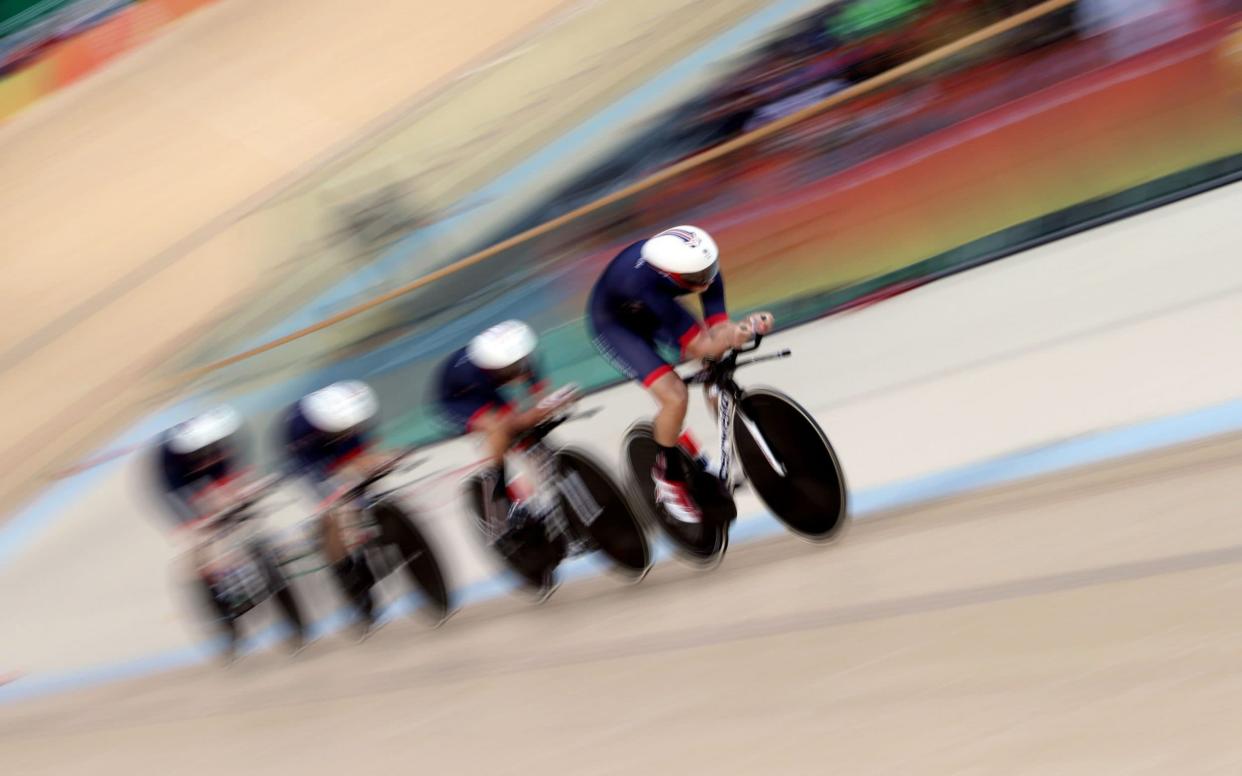Over half of British Olympic and Paralympic teams at Rio 2016 fielded only white athletes, report shows

A report has exposed a woeful lack of Black, Asian and Minority Ethnic (BAME) representation within Great Britain's Olympic and Paralympic squads, finding that over half of the British teams at the 2016 Rio Games fielded only white athletes, with some of the worst-offending sports also receiving the most funding.
According to the Summus Sports reports, a staggering 16 out of 23 Olympic squads and eight out of 19 Paralympic squads had no BAME representation at the Games four years ago. Meanwhile, the report found an over-representation of privately educated Olympians, making up 31 per cent of the Rio GB medallists, compared to seven per cent of the population and that an Old Etonian has won a medal in a ‘sitting down’ sport (rowing, sailing, cycling, equestrianism) at every Summer Olympic Games since 1992.
The report also highlighted that UK Sport made no mention of diversity or inclusion as a criteria or motivation for funding in its nine-page Tokyo Investment Principles document. As such, rowing (£30 million), cycling (£29.6 million) and swimming (£22.4 million) continue to be three of the top four publicly-funded elite programmes, despite fielding just one BAME athlete at Rio between them. Even when combining their Paralympic and Olympic squads, rowing and cycling's line-ups included just two BAME athletes.
There seems to have been little in the way of progress in the last four years either. As of March of this year, just 10 per cent of UK Sport funded athletes identified as BAME, and though squads for the rescheduled 2020 Tokyo Games are yet to be selected, the most recent figures from the aforementioned three sports show they remain largely white.
Latest figures show cycling has just five BAME riders across their elite programmes, including Paralympic and Olympic athletes. British Swimming's World Championship 2019 team showed representation has improved since Rio, but still only had eight per cent BAME representation in their para-swimming team and just three per cent in their swimming squad. Around three per cent of British Rowing's World Championship squad last year were BAME, though exact figures are unavailable as records of ethnicity are not kept.
When approached by the Telegraph Sport, British Swimming, Rowing and Cycling acknowledged the progress they still need to make to improve diversity within their elite squads, and highlighted various programmes in place that are pushing to do just that through improving grassroots accessibility.
Sport England board member Chris Grant, one of the most senior black administrators in British sport, this week attended a meeting between UK Sport and all four home nation sporting councils which has made him "cautiously optimistic" on things improving in the future, as racial inequality continues to form part of the national conversation. But he added that he has been vocal on this exact issue for a number of years, which has had little meaningful support or action.
"One of the things I've been asking for for ages — and one of the reasons I welcome this report — is we need data," Grant told the Telegraph Sport. "There is a requirement for those receiving public funding to be able to demonstrate that they're spending their money fairly. Without this kind of research, we can’t do that.
"Frankly this area hasn't been taken seriously enough. Some measures were introduced to try and support national governing bodies produce meaningful [diversity] plans, but there hasn't been a strong enough focus on that.
“Many people within the system can't close their eyes and imagine a rowing squad with black rowers in it, and that's where unconscious bias is powerful in sport. And that's one of the things we've got to overcome. If I’m cautiously optimistic it’s because, maybe now, leaders and people of influence in sport will see through their own limiting assumptions, and understand that, with the right will, and the right analysis, and a bit of humility, we can do this.”
At face value the ethnic make-up of the 2016 Olympic squad is close to a proportional representation of the general population, with 15 per cent of athletes from BAME backgrounds (as compared to 17 per cent of the UK population). But when looking at the sports individually, as Summus Sports did in their research, the cracks in that picture begin to emerge.

Of the 56 BAME British athletes at the last Olympics, 41 came from athletics and boxing, meaning there were just 15 BAME athletes across the remaining 21 squads. The story in the GB Paralympic squad was more worrying, with just seven per cent of the squad identifying as BAME, and similarly three sports (athletics, wheelchair rugby and wheelchair basketball) fielding the majority of para-athletes from ethnic minorities.
UK Sport CEO Sally Munday pointed to this week's meeting as a marker of the intentions her organisation and the four home nation sports councils have: "Whilst Team GB and Paralympics GB provide some incredible and diverse role models for the UK, we recognise there is still considerable work to do to ensure high-performance sport genuinely reflects UK society.
"All five organisations are committed to working together in moving forward with this work and have agreed to develop and deliver a clear, considered action plan. UK Sport will do all it can to ensure high-performance sport is truly inclusive.”
Sports Minister Nigel Huddleston also said he was "committed" to working with UK Sport to make British sport more diverse, and added that "the time is absolutely right to review the Sports Governance Code, and set new expectations".


